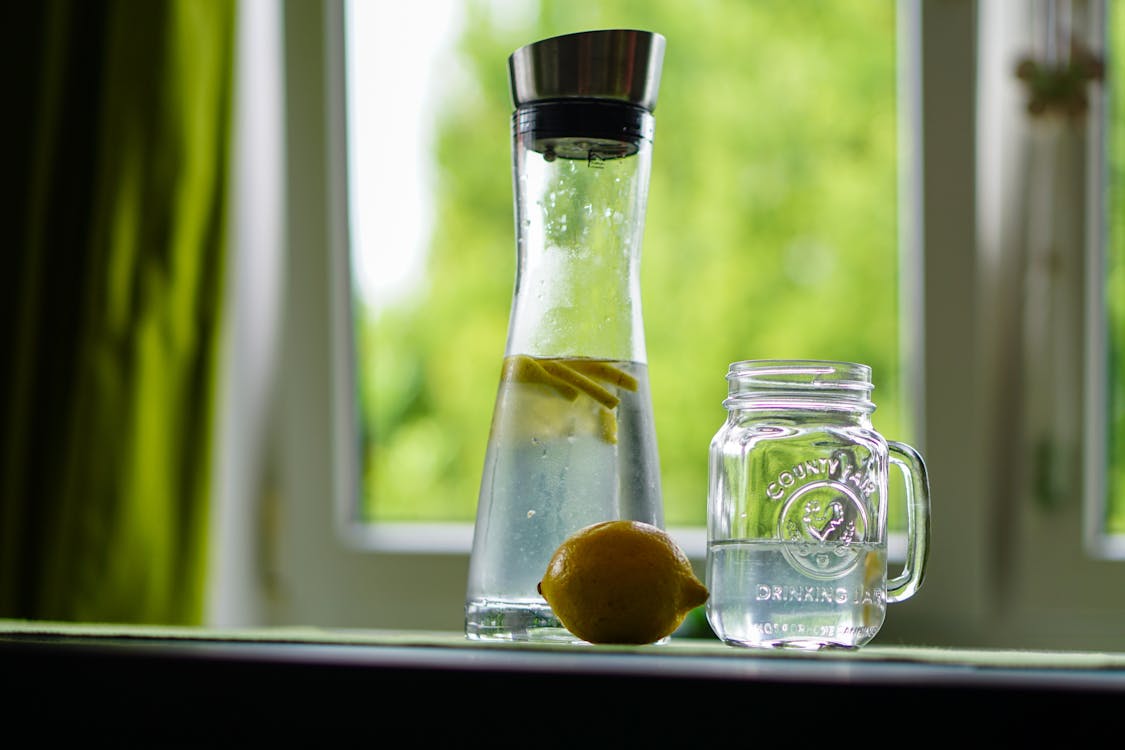Updated on November 11th, 2022
Many people are curious about what lemon juice tastes like, and you might be too. This tangy liquid gives many foods a boost in flavor without adding table salt. However, not everyone enjoys lemon’s tart flavor, so you might be looking for a lemon juice substitute. While you might want to choose the sweeter, less acidic version over the sour variety, it is essential to consider your health before deciding to add lemon to your dishes.

The acidity in lemon juice is the main component that gives the fruit its characteristic sour taste. Because of this, there is a limit to the amount of lemon juice that will go bad before it spoils. It’s important to know when your lemon juice is past its best because you don’t want to consume it too soon. Also, lemons have a high concentration of citral, which is the sour part.
What Is Lemon Juice?
Lemon juice is obtained by crushing the fruit’s pulp. Lemon juice is most typically used in lemonade, a beverage made from lemon juice, water, and sugar. Citrus fruits contain citric acid, which is highly acidic. The flavor of lemons can range from tart to sweet.
What Does Lemon Juice Taste Like?
A fresh lemon should be a sweet, sour, and acidic beverage. Lemon juice has a sour taste, and Citric acid helps prevent bacteria from growing. Its acidic nature makes it the perfect ingredient for cocktails, sweets, and desserts. Its tartness makes it the perfect complement for poultry, asparagus, dill, and other ingredients. Its flavor is refreshing and energizing, making it an essential ingredient in many dishes. In fact, you can even cook with lemon to give a dish a unique twist.
Is Lemon Juice Good For Your Health?
Vitamin C can be found in abundance in lemon juice. Vitamin C has been demonstrated in studies to be an essential nutrient in preventing many contemporary diseases.
Bone production, connective tissue healing, and gum health require vitamin C. It also aids the immune system in the fight against infections and protects cells from free radical damage. Vitamin C treatment has been discovered to help prevent atherosclerosis by strengthening artery walls and treating infertility and neurological illnesses such as Alzheimer’s disease.
A tablespoon of lemon juice contains the following ingredients:
- 3 calories
- 0-gram protein
- 0 gram of fat
- 1 gram carbohydrate
- 0-gram fiber
- 0-gram sugar
Lemon Juice’s Potential Health Benefits
Lemon juice is high in beneficial phytochemicals and offers a variety of health benefits. Drinking lemon juice has been linked to many health benefits, according to research:
Antimicrobial Properties
Antibacterial and antifungal activities are found in lemon juice. In one study, plant components found in lemon juice concentrate successfully suppressed the growth of salmonella, staphylococcus, and candida infections. It also worked against a type of antibiotic-resistant bacteria that causes pneumonia and blood infections.
Blood Pressure Should Be Lower
A probable link between lemon juice consumption and blood pressure was investigated by Japanese researchers. They discovered an inverse association, which means that the more lemon juice a test participant consumed, the lower their blood pressure became. More research is needed to determine why the lemon juice chemicals may help reduce blood pressure.
Preventing Cancer
Lemon juice is high in flavonoids, which aid in preventing cancer. These flavonoids have antioxidant effects and inhibit the growth and spread of cancer. Lemon juice was particularly effective in suppressing the proliferation of leukemia cells in one investigation.
Treatment for Cancer
Lemon juice has been demonstrated to inhibit tumor growth, making it effective in treating some cancers. According to researchers, Lemon-derived cell messaging agents have been revealed to restrict cell reproduction and stimulate cancer cell death.
Is Too Much Lemon Juice Harmful?
Because lemon juice contains such strong chemicals, you should seek medical advice before using it or any other supplement. Before you drink lemon juice, consider the following:
Allergies to citrus fruits
You can be allergic to lemons if you’re allergic to grass pollen or other citrus fruits like oranges, grapefruit, or lime. The most typical effects are itching, burning, and swelling of the tongue and throat. Headaches and stomach problems are common side effects for some persons.
Dental Enamel May Erode
There have been reports of tooth deterioration in those who consume significant amounts of lemon juice. If drinking in excess, the natural acids in lemon juice can destroy teeth’ enamel.
Can Result in Migraines
Tyramine is abundant in lemon juice. Lemon juice might cause migraine headaches if you are susceptible to tyramine.
How Much Lemon Juice Do You Need To Drink Per Day?
Both Dr. Datta and Dr. Sood recommend that drinking the juice of two lemons every day is sufficient to keep you hydrated. Furthermore, drinking lemon juice every day is totally healthful. “You may make a delightful glass of shikanji every day by mixing lemon juice and water with salt or sugar (if you’re not diabetic) and cumin or jeera powder,” explains Dr. Datta. On the other hand, Dr. Sood believes that honey is the most excellent additive to lemon juice.
Lemon juice can be consumed daily because it is a hydrating and healthful beverage. It’s incredibly healthful to drink lemon juice with warm water first thing in the morning. Lemon juice also contains potassium, an essential mineral during the summer months. Dr. Rupali recommends mixing lemon juice with salt as an oral rehydration solution in the summer. She also recommends pouring a little of the juice over beans and vegetables in salads to help the body absorb more iron.
Fresh Vs. Bottled Lemon Juice
Both have an extremely low calorie and fat content.
Vitamin C, folate, and potassium are all abundant in both.
Fresh lemon juice has a higher vitamin C content than bottled lemon juice.
Pasteurization of bottled lemon juice entails heating it quickly and then cooling it swiftly again. Because specific compounds in the juice degrade due to heating, the flavor changes. Many water-soluble vitamins, in particular, are highly temperature-sensitive and are destroyed by heat. This heat treatment damages vitamin C in particular.
Some bottlers add vitamin C back in because they know people anticipate it. Others add sugar because some of the reactions during the healing process are sour (acidic), and people prefer it fresh. As a result, they make it up. Sunny D and comparable products contain vitamin C and the same amount of sugar as a can of soda.
Storage Of Lemon Juice
Lemon juice has a varying shelf life. Old lemon juice will be bitter and brown, and you should discard it immediately. If it’s no longer whitish-clear, it’s probably time to throw it out. To avoid this, make sure to refrigerate it after opening. Otherwise, it will become sour and lose its sour taste.
The acidity level of lemon juice can vary. It is acidic and can spoil quickly. For this reason, it is essential to refrigerate lemon juice as soon as possible after opening it, which will prevent the growth of bacteria and the formation of vinegar. Moreover, it is essential to know what your food tastes like. If it is sour, you’ll notice that it will not taste good. In contrast, a tart lemon flavor is mild and enjoyable.
Uses Of Lemon Juice
It has many uses in food, including condiments, baking, and treatment for many diseases. Nevertheless, too much of it can damage the stomach lining. If you don’t have a lemon juice-free diet, you can try this juice as a remedy.
Besides the bright citrus flavor, lemon juice can also have other uses. It can be added to dishes to add a fresh and vibrant flavor. Despite its low pH level, lemons contain a high amount of citric acid, which is very useful in baking. Its acid content also contributes structure to baked goods. It can be used as an ingredient in baking and jam, and it can even be used in drinks.
It is used for baking, making lemonade, and adding a tart flavor to many other dishes. It’s also often used to make lemonade, a drink made from lemons and sugar. Although lemon juice is sour, it does not taste unpleasant. If you’re cooking with it, add a little salt, and you’ll find that it becomes a salty-sweet drink.
Conclusion
Lemons are an excellent source of vitamin C, so you should try drinking lemon juice whenever you can. The acidity of lemon juice can make your stomach uncomfortable if you drink too much of it. In addition, lemons have a bitter flavor, so excessive consumption of lemon juice can cause indigestion and diarrhea. It is best to avoid lemon juice if you have acid reflux, as it can aggravate your symptoms.
The acid content of lemons is essential to their flavor. The acidity in lemon juice is primarily derived from its citric acid content. It is a vital food substance, and it has a high pH level, vital for human health. Its taste, however, is dependent on the amount of sugar it contains. It should be slightly bitter if you’re drinking the juice in lemon water, and it is a sign of bad quality.

